A blockchain VRF (Verifiable Random Function) oracle is a mechanism that generates random
numbers on a blockchain network in a verifiable and tamper-proof way. You can use VRF oracles
to generate random numbers for various purposes, such as smart contract-based lottery games,
decentralized exchanges, and other dApps that require a random number generator.
The need for a VRF oracle arises from the fact that a blockchain is an immutable and decentralized
system. As such, it is impossible to generate truly random numbers on a blockchain without using an
external source of entropy. VRF oracles solve this problem by generating random numbers that can be
verified and audited by all parties on the blockchain network; this ensures that the random numbers
generated are genuinely random and not influenced by any single party.
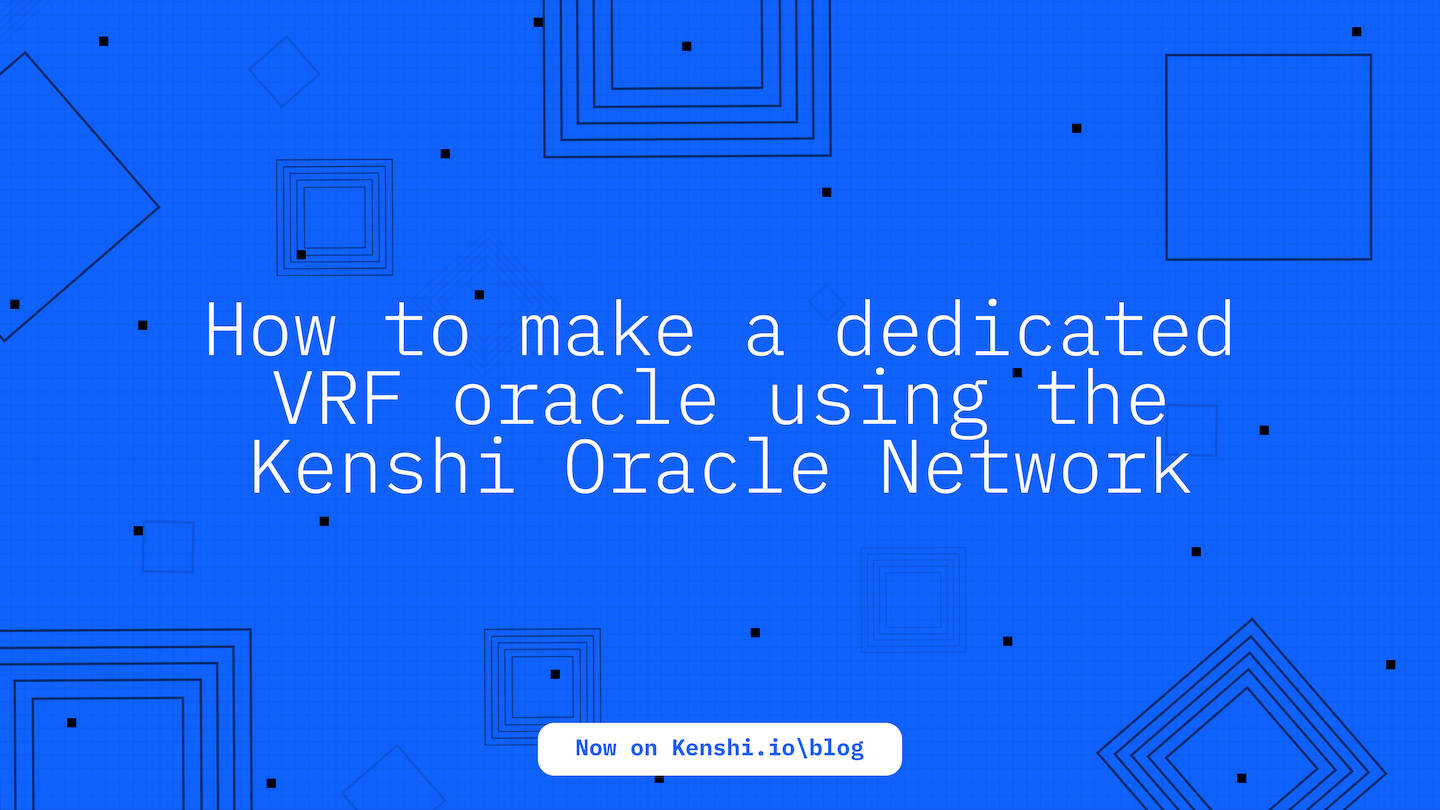
How to deliver randomness to your smart contract in a secure way?
A dedicated VRF (Verifiable Random Function) oracle has several benefits compared to one that
shares its private key with many others:
- Security: A dedicated VRF oracle reduces the risk of key compromise as only one party uses the private key by one party rather than being shared among multiple parties. If a shared VRF oracle's private key is compromised, all parties utilizing the oracle are affected.
- Privacy: A dedicated VRF oracle can generate unique and private random numbers for each party using it, preventing any potential cross-contamination of information.
- Customizability: With a dedicated VRF oracle, the party using it has complete control over the oracle and can configure it to meet their specific needs. This level of customizability allows the party to tailor the oracle to their particular use case, such as generating random numbers for specific algorithms or protocols.
- Performance: A dedicated VRF oracle can have its dedicated resources, ensuring it is always available and responsive to requests. Dedicated resources can result in faster response times and higher throughput, especially for high-traffic applications.
- Trust: By having a dedicated VRF oracle, the party using it can have greater trust in the oracle's security and the integrity of the generated random numbers.
- Compliance: In some cases, regulations or industry standards may require using a dedicated VRF oracle to ensure that the generated random numbers meet specific requirements. For example, in the financial industry, regulations such as PCI DSS and HIPAA require specific security controls to be in place. Using a dedicated VRF oracle can help financial institutions meet these requirements by ensuring the integrity and security of the generated random numbers.
- Cost-effectiveness: Depending on the scale of the application, using a dedicated VRF oracle may be more cost-effective in the long run, as it allows for greater control over the oracle and reduces the risk of key compromise.
Organizations in various industries should consider using a dedicated VRF oracle to ensure that
the generated random numbers meet specific security, integrity, and fairness requirements and
comply with regulatory standards.
In this article, we will show you how to make your dedicated VRF oracle using the Kenshi Oracle
Network.
To create your custom oracle with the Oracle Network, you can use your preferred programming language.
In this tutorial we will use JavaScript. We will also write a sample smart contract in Solidity
that will interact with your new oracle. I will show you how to code, create and deploy your
dedicated VRF oracle and guide you through the best security practices.
This tutorial uses the Kenshi VRF library for generating randomness. This library implements
the 10th draft of ECVRF published
by the IETF. I will use Vercel to deploy the oracle, but you can host it anywhere else. To
follow this tutorial, you can create a free Vercel account.
The first thing you need is to set up your project tree. Run the following commands to
create a npm project and install the required dependencies:
mkdir vrf-oracle
cd vrf-oracle
npm init -y
npm i -S ethers elliptic @kenshi.io/node-ecvrf
mkdir api
mkdir misc
touch api/oracle.js
touch misc/keys.jsYour oracle needs a private key for to generate secure randomness using the VRF. We can
use the Kenshi VRF library to get one. Let's write a few lines of code in "misc/keys.js" that
prints out a key pair when executed:
import { keygen } from "@kenshi.io/node-ecvrf";
const keypair = keygen();
console.log(`Private key: ${keypair.secret_key}`);
console.log(`Public key: ${keypair.public_key.compressed}`);Save and run the above file with Node and you'll have your private key and its corresponding
public key. Write these down in a safe place as we'll need them later. Usually you should
store these in a secret manager and read them only when needed. However, to keep this tutorial
simple we won't cover that step. Instead we will just use Vercel environment variables to
store the private key.
Your oracle logic should go to the "api/oracle.js" file. You need a function that
takes in the information about a randomness request and generates randomness from it.
This function should also generate the required parameters for verifying the randomness
on chain.
Here's a sample function that takes in a transaction and generates randomness from it,
together with the parameters required for verifying it on-chain using the Kenshi VRF library:
import { decode, prove, getFastVerifyComponents } from "@kenshi.io/node-ecvrf";
import { createHash } from "crypto";
import Elliptic from "elliptic";
const EC = new Elliptic.ec("secp256k1");
const { env } = process;
const getPublicKey = (privateKey) => {
const key = EC.keyFromPrivate(privateKey);
return {
key: key.getPublic("hex"),
compressed: key.getPublic(true, "hex"),
x: key.getPublic().getX(),
y: key.getPublic().getY(),
};
};
const fromHex = (hex) => Buffer.from(hex.slice(2));
const hash = (...args) => {
const sha256 = createHash("sha256");
for (const arg of args) {
sha256.update(arg);
}
return sha256.digest().toString("hex");
};
const generateRandomness = (entry) => {
const publicKey = getPublicKey(env.VRF_PRIVATE_KEY);
const alpha = hash(
fromHex(entry.transaction.hash),
fromHex(entry.log.index),
fromHex(entry.block.address),
fromHex(entry.event.args.requestId)
);
const proof = prove(env.VRF_PRIVATE_KEY, alpha);
const fast = getFastVerifyComponents(publicKey.key, proof, alpha);
const [Gamma, c, s] = decode(proof);
return { alpha, proof, fast, Gamma, c, s }
}You also need to implement the Kenshi Oracle Network protocol. You only need a simple HTTP
server that tells the Oracle Network what to do with the incoming request. You need to tell
the Oracle network which function on your smart contract it should call, what arguments it
should pass to the function, and how much gas it is allowed to spend.
Using Vercel, you can do the following to achieve this:
import { decode, prove, getFastVerifyComponents } from "@kenshi.io/node-ecvrf";
import { createHash } from "crypto";
import Elliptic from "elliptic";
const EC = new Elliptic.ec("secp256k1");
const { env } = process;
const getPublicKey = (privateKey) => {
const key = EC.keyFromPrivate(privateKey);
return {
key: key.getPublic("hex"),
compressed: key.getPublic(true, "hex"),
x: key.getPublic().getX(),
y: key.getPublic().getY(),
};
};
const fromHex = (hex) => Buffer.from(hex.slice(2));
const hash = (...args) => {
const sha256 = createHash("sha256");
for (const arg of args) {
sha256.update(arg);
}
return sha256.digest().toString("hex");
};
const generateRandomness = (entry) => {
const publicKey = getPublicKey(env.VRF_PRIVATE_KEY);
const alpha = hash(
fromHex(entry.transaction.hash),
fromHex(entry.log.index),
fromHex(entry.block.address),
fromHex(entry.event.args.requestId)
);
const proof = prove(env.VRF_PRIVATE_KEY, alpha);
const fast = getFastVerifyComponents(publicKey.key, proof, alpha);
const [Gamma, c, s] = decode(proof);
return { alpha, proof, fast, Gamma, c, s }
}
export default function handler(request, response) {
const { entry } = request.body;
const { alpha, fast, Gamma, c, s } = generateRandomness(entry);
response.status(200).json({
method: "setRandomness",
args: [
[Gamma.x.toString(), Gamma.y.toString(), c.toString(), s.toString()],
`0x${alpha}`,
[fast.uX, fast.uY],
[fast.sHX, fast.sHY, fast.cGX, fast.cGY],
entry.event.args.requestId,
],
maxGas: "10000000000000000", // 0.01 ETH
abort: false,
});
}To deploy the oracle, you can run this command at the root of the project and follow
the instructions:
vercel .You should see an output like this:
➜ vercel .
Vercel CLI 23.1.2
? Set up and deploy “~/Projects/kenshi/sample-vrf-oracle”? [Y/n] y
? Which scope do you want to deploy to? *****
? Link to existing project? [y/N] n
? What’s your project’s name? sample-vrf-oracle
? In which directory is your code located? ./
No framework detected. Default Project Settings:
- Build Command: `npm run vercel-build` or `npm run build`
- Output Directory: `public` if it exists, or `.`
- Development Command: None
? Want to override the settings? [y/N] n
🔗 Linked to *****/sample-vrf-oracle (created .vercel and added it to .gitignore)
🔍 Inspect: https://vercel.com/*****/sample-vrf-oracle/******** [1s]
✅ Production: https://sample-vrf-oracle.vercel.app [copied to clipboard] [13s]
📝 Deployed to production. Run `vercel --prod` to overwrite later (https://vercel.link/2F).Copy and keep the deployment URL safe, as you will need it later. You need one more step to make
the project functional. You need to go to the Vercel dashboard, find your project, and enter your
private key as the value for the "VRF_PRIVATE_KEY" environment variable:
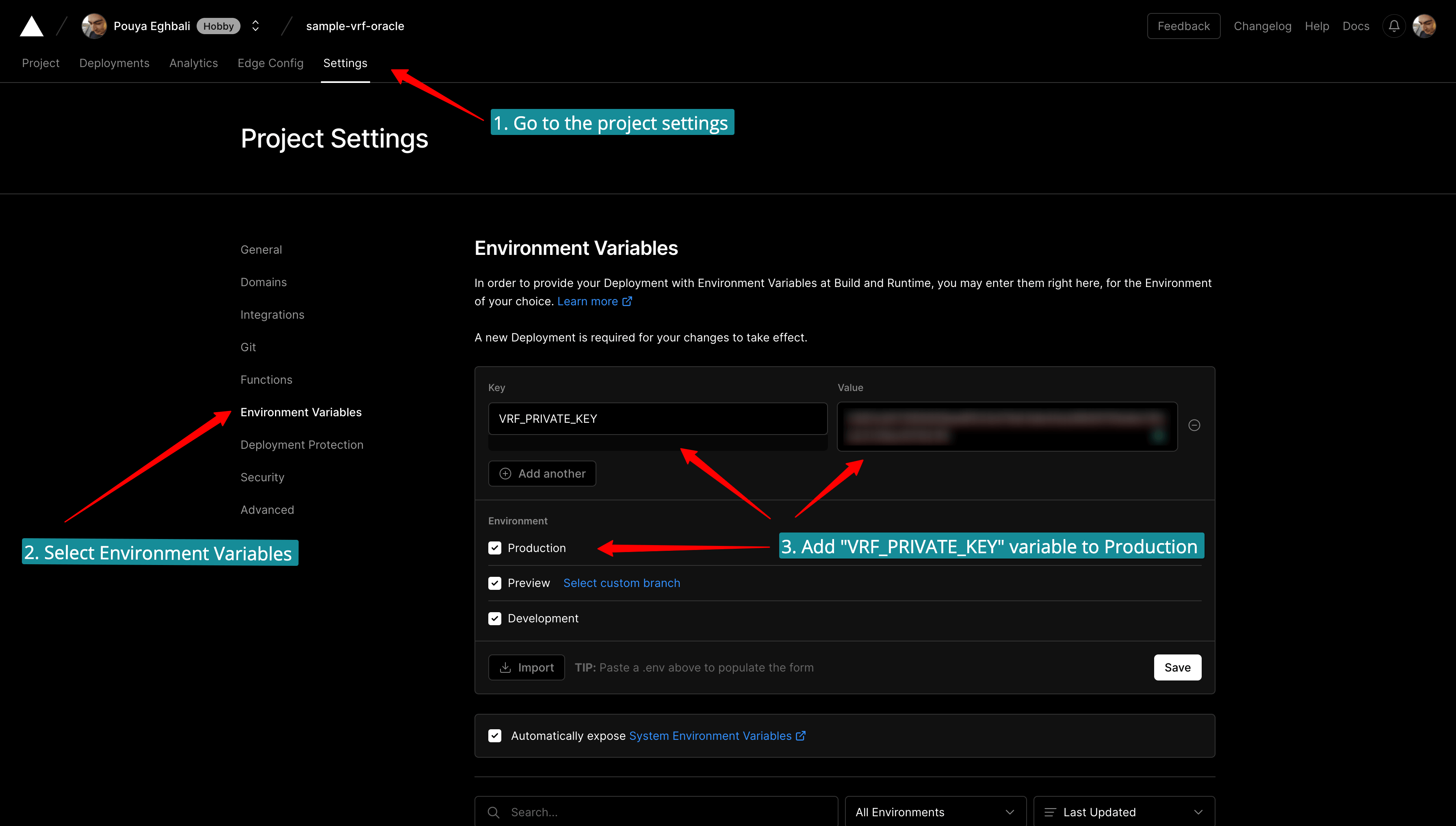
Add your private key under VRF_PRIVATE_KEY environment variable
Now you need a smart contract that talks to your oracle and requests randomness, so let's make
a simple contract that does just that. Let's create a barebone contract first:
// SPDX-License-Identifier: MIT
pragma solidity ^0.8.17;
contract VRFOracle {
address private _owner;
constructor() {
_owner = msg.sender;
}
}Now you need a function that emits an event requesting the randomness. Let's add this function
and the corresponding event:
// SPDX-License-Identifier: MIT
pragma solidity ^0.8.17;
contract VRFOracle {
address private _owner;
constructor() {
_owner = msg.sender;
}
// A simple event to make randomness requests
event RandomnessRequest();
/**
* Emit an event that will be picked up by the Kenshi
* Oracle Network and sent to your oracle for processing
*/
function requestRandomness() external {
emit RandomnessRequest();
}
}Next you will need a callback function that your oracle will call to deliver the requested randomness.
You contract should also emit an event that shows what random number was delivered. Since you want to
verify the delivered randomness on-chain, you need to accept a few specific parameters and pass them
to the Kenshi VRF libraries verification function:
// SPDX-License-Identifier: MIT
pragma solidity ^0.8.17;
import "@kenshi.io/vrf-consumer/contracts/VRFUtils.sol";
contract VRFOracle {
address private _owner;
VRFUtils _utils;
constructor(bytes memory publicKey) {
_owner = msg.sender;
_utils = new VRFUtils();
_utils.setPublicKey(publicKey);
}
// A simple event to make randomness requests
event RandomnessRequest();
event RandomnessRequestFulfilled(uint256 randomness);
/**
* Emit an event that will be picked up by the Kenshi
* Oracle Network and sent to your oracle for processing
*/
function requestRandomness() external {
emit RandomnessRequest();
}
/**
* This method will be called by the Kenshi Oracle Network
* with the result returned from your oracle
*
* Note: We encourage reading the IETF ECVRF drafts to understand
* what's going on: https://datatracker.ietf.org/doc/html/draft-irtf-cfrg-vrf
*/
function setRandomness(
uint256[4] memory proof,
bytes memory message,
uint256[2] memory uPoint,
uint256[4] memory vComponents
) external {
bool isValid = _utils.fastVerify(proof, message, uPoint, vComponents);
require(isValid, "Delivered randomness is not valid or is tampered with!");
bytes32 beta = _utils.gammaToHash(proof[0], proof[1]);
uint256 randomness = uint256(beta);
emit RandomnessRequestFulfilled(randomness);
}
}Let's add some security to the contract and verify that your oracle, not an attacker, is
calling your callback. You also want to prevent double delivery of randomness by keeping
track of each request:
// SPDX-License-Identifier: MIT
pragma solidity ^0.8.17;
import "@kenshi.io/vrf-consumer/contracts/VRFUtils.sol";
contract VRFOracle {
address private _owner;
address private _oracle;
uint256 private _requestId;
VRFUtils private _utils;
mapping(uint256 => bool) private _alreadyFulfilled;
constructor(bytes memory publicKey) {
_owner = msg.sender;
_utils = new VRFUtils();
_utils.setPublicKey(publicKey);
}
/**
* Sets the oracle address to prevent anyone else from
* calling the "setVRF" method
*/
function setOracle(address oracle) external {
require(msg.sender == _owner, "Only owner can call this");
_oracle = oracle;
}
// A simple event to make randomness requests
event RandomnessRequest(uint256 requestId);
event RandomnessRequestFulfilled(uint256 requestId, uint256 randomness);
/**
* Emit an event that will be picked up by the Kenshi
* Oracle Network and sent to your oracle for processing
*/
function requestRandomness() external {
emit RandomnessRequest(_requestId++);
}
/**
* This method will be called by the Kenshi Oracle Network
* with the result returned from your oracle
*
* Note: We encourage reading the IETF ECVRF drafts to understand
* what's going on: https://datatracker.ietf.org/doc/html/draft-irtf-cfrg-vrf
*/
function setRandomness(
uint256[4] memory proof,
bytes memory message,
uint256[2] memory uPoint,
uint256[4] memory vComponents,
uint256 requestId
) external {
require(msg.sender == _oracle, "Only the oracle can deliver!");
require(!_alreadyFulfilled[requestId], "Already fulfilled");
_alreadyFulfilled[requestId] = true;
bool isValid = _utils.fastVerify(proof, message, uPoint, vComponents);
require(isValid, "Delivered randomness is not valid or is tampered with!");
bytes32 beta = _utils.gammaToHash(proof[0], proof[1]);
uint256 randomness = uint256(beta);
emit RandomnessRequestFulfilled(requestId, randomness);
}
}You can now head over to Remix IDE and deploy the above smart contract. You should pass
the public key you generated to the constructor function of the smart contract, don't forget
to prefix it with 0x:
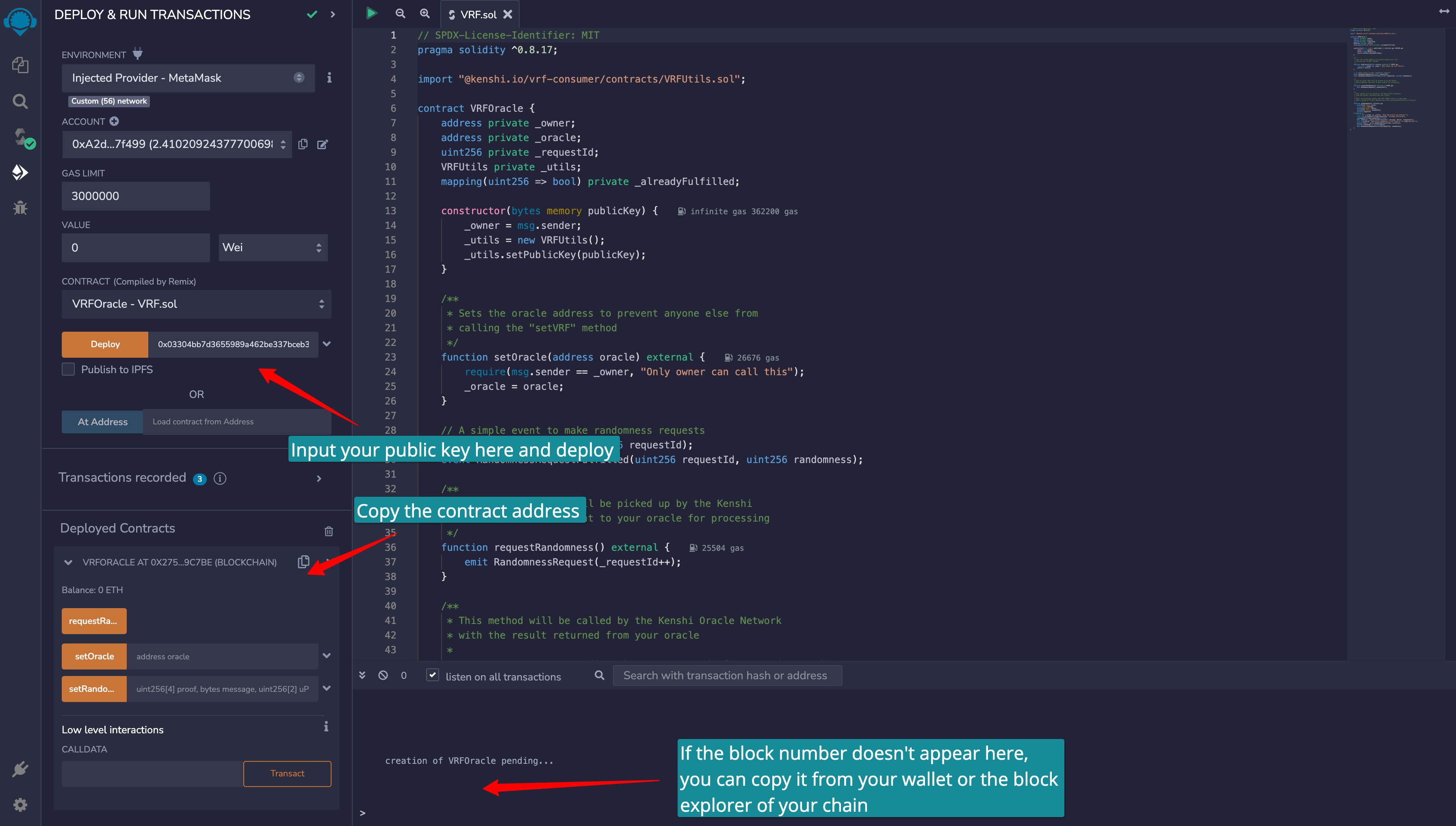
Deploy with Remix and copy the deployment details
Copy the deployed contract address and the block number in which you deployed the contract
somewhere safe, as you will need them later.
You're now ready to create your oracle on the Kenshi Oracle Network. Head to the Kenshi Oracle Network
dashboard and click the "Create Oracle" button. Fill out the form as follows:
- Select your smart contract chain (BNB Smart Chain for this example) from the "Blockchain" dropdown and input your deployed contract address in the "Contract address" field.
- Enter the block number of your smart contract into the "Block" field under the "Starting point" section. This field tells the Oracle Network to look for randomness requests starting from that block.
- In the "Endpoint" field under the "Oracle logic" section, enter the deployment address you got from Vercel.
- Input the human-readable ABI of your contract into the form's "ABI" field.
- Enter the event signature defined in your smart contract into the "Signature" field.
- Finally, you can decide on how many months and for how many requests the Oracle Network should keep your oracle alive.
The filled form should look similar to this, except for the contract address and the oracle
logic endpoint:
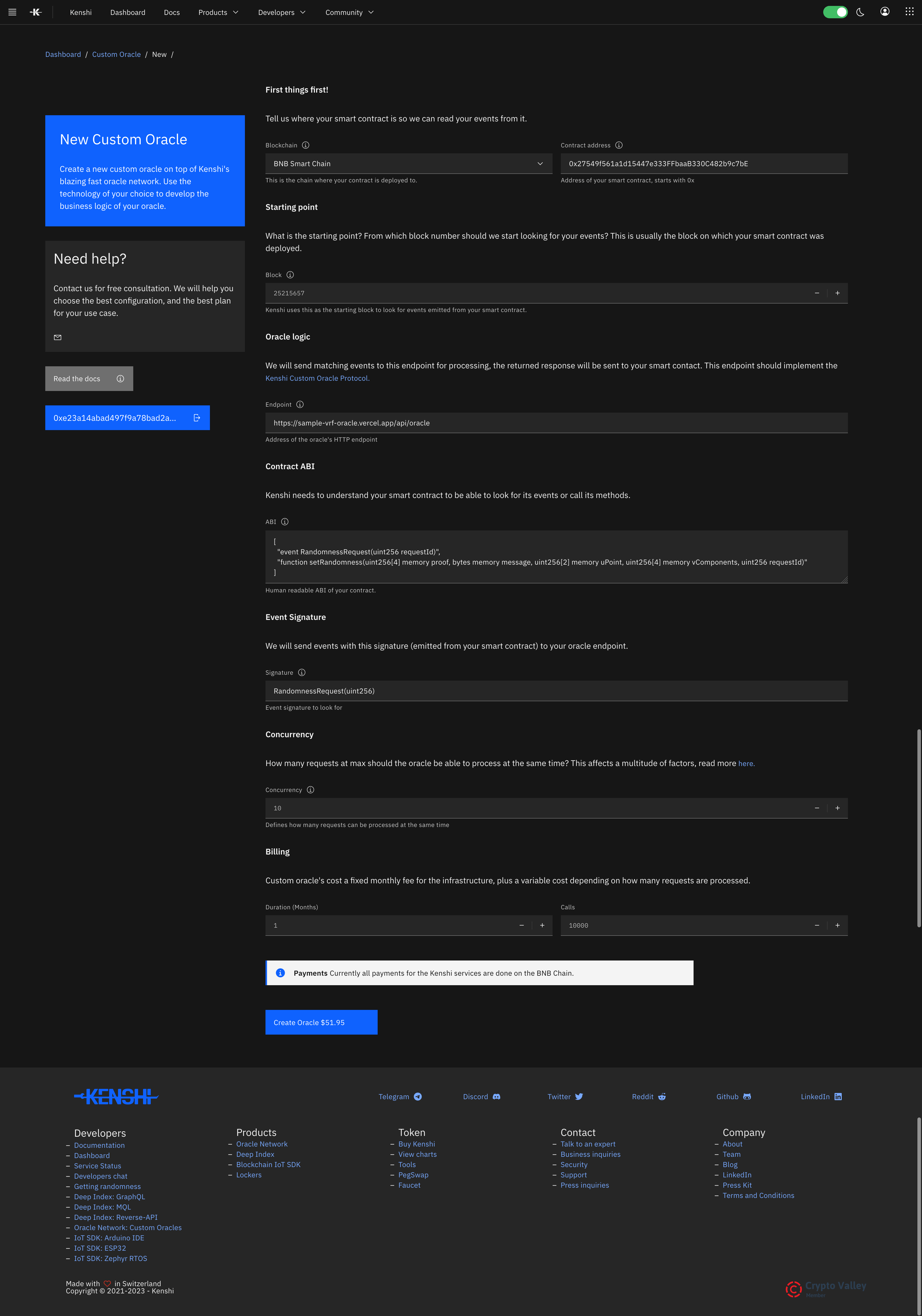
Your custom oracle filled form should look like this
Once deployed, go to the oracle admin page on the Kenshi Oracle Network dashboard and copy
the gas (sender) address of your oracle from the "Add Credit" tab:

Get the oracle's gas (sender) address here
You need to transfer a little bit of gas to your oracle so it can fulfill randomness requests:
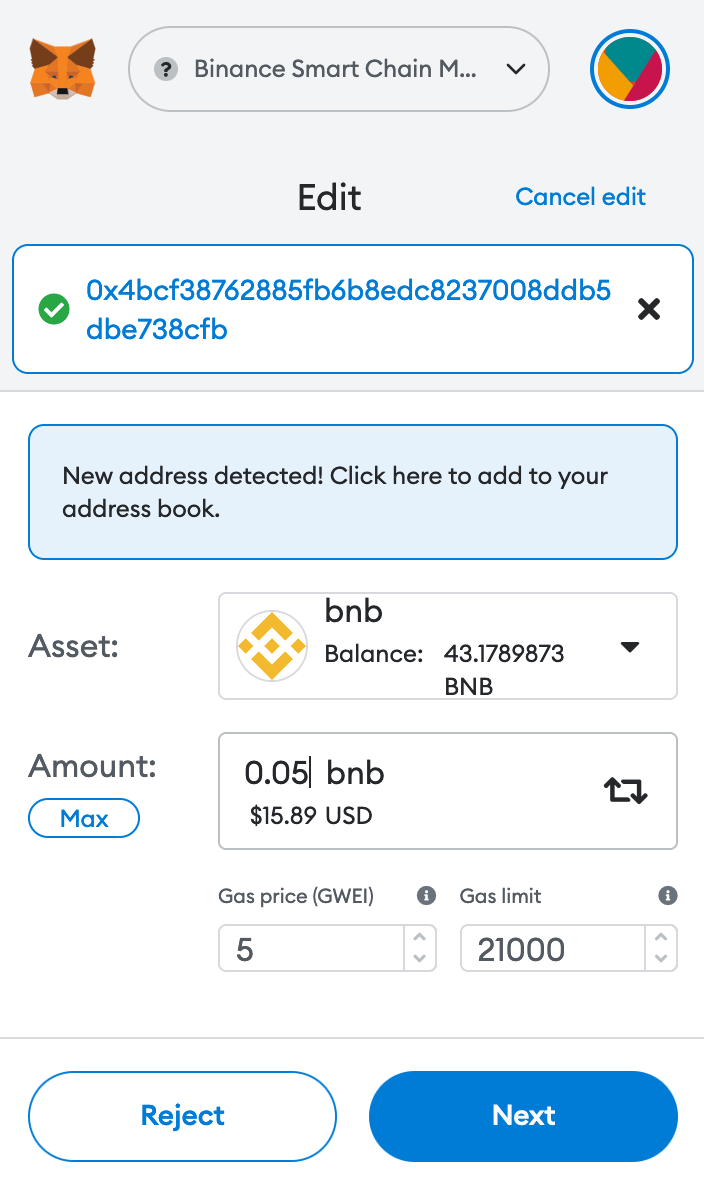
And finally, you will need to authorize the oracle address in your smart contract:
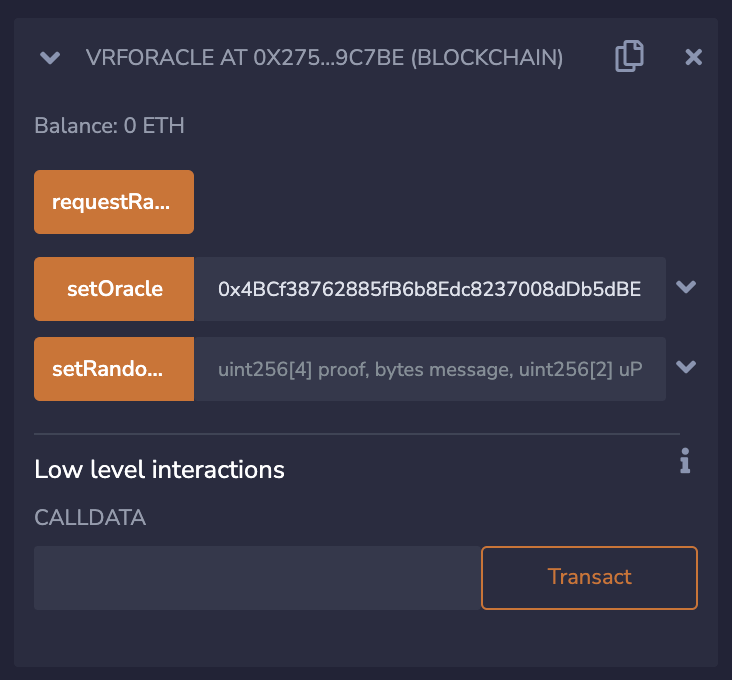
Now you can call the "requestRandomness" function of the contract, and assuming you followed
all the previous steps, the oracle should send you a response:

Kenshi Oracle Network has hyper-fast response times
You should be able to see the delivered randomness now:

You can now check the received randomness in the RandomnessRequestFulfilled event
In this article we demonstrated a simple VRF oracle, however the possibilities of
the Kenshi Oracle Network are limitless! Be sure to follow us on Twitter if you want more
news about Kenshi or more awesome articles about the Kenshi Oracle Network.
You can view the source code of this sample oracle
here on GitHub .
